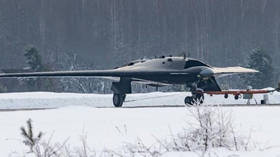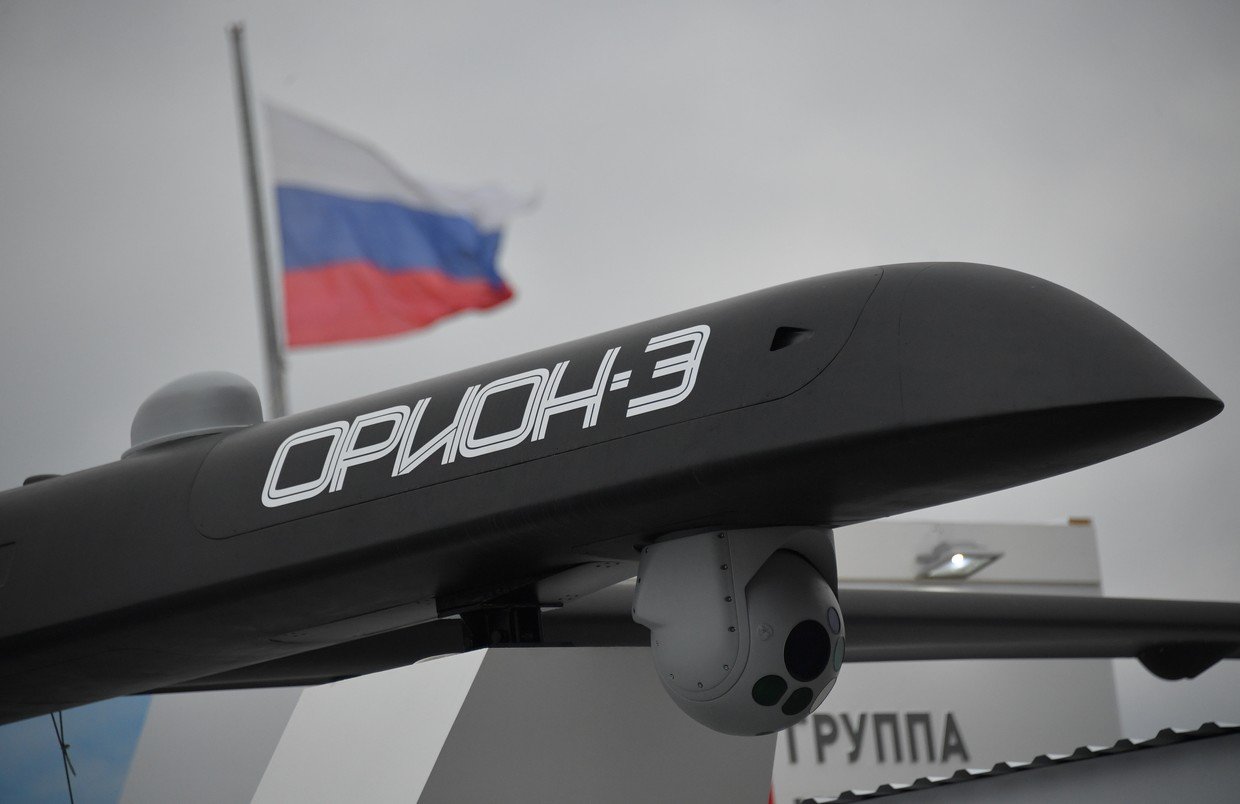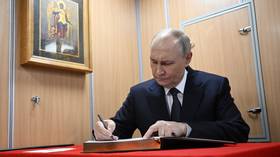Soulless hunters: Should the West beware of new Russian heavyweight drones?

Russia is testing the heavy attack drone Okhotnik ('Hunter'), which is designed to dismantle an enemy’s defenses. It is scheduled to enter service this year along with some similar models. Can it challenge the West's UAV reign?
The new heavy stealth attack drone Okhotnik will have its first test flight in the "nearest future," Industry and Trade Minister Denis Manturov said on Friday. The military earlier announced that it would start receiving new state-of-the-art recon and attack UAVs this year.
With the Pentagon extensively utilizing drones like MQ-1 Predator to spot and strike targets in places like the Middle East and Afghanistan, Moscow now hopes to up its game in drone warfare.
Also on rt.com Russian bots: Armed Uran-9 ground drones enter serviceAround 70 Russian drones have already been deployed in Syria. Their mission has proven to be successful, the military says, as Forpost and Orlan-10 models spotted more than 47,000 enemy targets.
Russia doesn’t yet have a full-fledged attack drone, however. The Okhotnik project is designed to change that. Developed by the Sukhoi aircraft manufacturer, it boasts a takeoff weight of 25 tons and an operational range of 5,000km. The first images of the drone, leaked last month, showed a flying wing-type aircraft rolled out on an airstrip during testing.
Ударный БПЛА "Охотник-Б" со всех сторон.#БПЛА#беспилотник#охотникpic.twitter.com/p1w65GMNIU
— Военный обозреватель (@Milcolumnist) January 24, 2019
Media reports suggested that the UAV will not only be effective during solo missions, but also paired up with the newest 5th-gen supersonic stealth jet fighter Su-57. It is intended that the plane would enter battles after the drone has "penetrated" the enemy’s air defenses, sources told Interfax in January, adding that the drone will be "controlled" by the crew of the incoming jet.
Another drone set to enter service en masse this year is Orion. Known as Type 90 during its production stage, this medium UAV weighs in at around 1,000kg. It is capable of conducting 24-hour flights and striking targets with guided missiles, as well as 25kg and 50kg bombs. The aircraft was showcased during an arms expo last year and underwent testing in Syria.
Editor-in-chief of the Russian UAV-themed magazine 'Bespilotnaya Aviatsiya,' Denis Fedutinov, told RT that Moscow is aiming to acquire drones whose size mirrors that of US models. The Orion belongs to the same size bracket as the American drone Predator, while Okhotnik "can be compared" to Boeing’s X-45 and Northrop Grumman’s X-47B prototypes, he said.

Russia’s push for getting sophisticated drones was validated by the air campaign in Syria, where UAVs made "a significant contribution" in pinpointing targets and surveillance, military expert Aleksey Leonkov explained. The Soviet drone tech was comparable to the one in the US but it was later nearly completely wiped out during the 1990s, he said. Most projects were "placed into deep freeze or suspended," but now the war in Syria has given them a new start.
Think your friends would be interested? Share this story!














